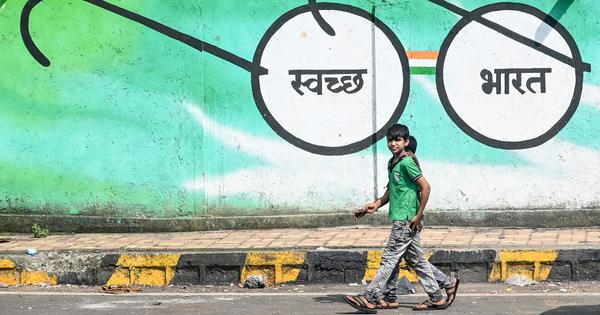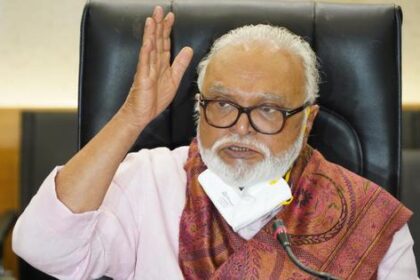Gandhi’s philosophy emphasizes individual responsibility in addressing the urban waste crisis.
The approach to solid waste management in urban India can benefit from revisiting Mohandas Gandhi’s philosophies, particularly in light of modern challenges. His perspectives emphasize individual duty while simultaneously critiquing wasteful economic systems that generate excessive garbage. A comparison of government frameworks for waste management reveals significant shifts in approach. The Municipal Solid Waste (Management and Handling) Rules, 2000, adopted a centralized model that focused on large waste collection facilities. However, this strategy proved ineffective, leading to its revocation in 2016. The subsequent Solid Waste Management Rules, 2016, advocate for decentralization and stress the importance of waste segregation at the source, whether in households, shops, or institutions. This shift aligns closely with Gandhi’s understanding that individuals must engage in managing their waste to ensure meaningful solutions.
Gandhi believed that the issues arising from modernity must be tackled at the individual level, placing responsibility directly on each person. This perspective contrasts with thinkers like Karl Marx and BR Ambedkar, who focused on class and caste dynamics. Gandhi’s philosophy suggests that effective waste management begins with personal commitment to reducing waste. Without proper segregation at the source, waste inevitably accumulates in landfills, producing harmful gases and leachates. His practices of resourcefulness, such as reusing even the smallest scraps, resonate with contemporary principles of reducing, reusing, and recycling.
If Gandhi were alive today, he would likely prioritize urban waste generation as a critical public issue, akin to his mobilization of support for khadi during India’s struggle for independence. The vast quantities of waste produced daily in urban areas reflect a pressing need for frugality and mindful consumption, principles that Gandhi championed in his ashrams. He recognized the caste-related dimensions of waste management in India, where social hierarchies often dictated one’s relationship with waste. To confront these biases, Gandhi engaged in activities such as cleaning toilets, challenging societal prejudices directly.
Furthermore, Gandhi’s vision of welfare extended beyond individual well-being to encompass the health of animals, rivers, lakes, and the broader environment. His advocacy for trusteeship in business ownership illustrated the need for collective decision-making to mitigate environmental harm. This is echoed in the Solid Waste Management Rules, 2016, which encourage communal responsibility in waste management. The slogan “My waste is my responsibility” from Kerala embodies a Gandhian ethos, reinforcing the notion that duties are as crucial as rights in contemporary democratic discourse.
Gandhi also critiqued large-scale industrial and economic systems, arguing in his book Hind Swaraj that the problems of modern civilization stemmed not from specific individuals but from the very nature of those systems. He contended that mass production, while lowering prices, damaged societal values and cultural integrity. The environmental repercussions of contemporary economic practices, such as pollution and plastic waste, are often dismissed as mere “externalities,” overshadowing the significant social and ecological costs involved.
In Gandhi’s view, the underlying economic principles that generate waste are flawed. He warned against blind adherence to demand and supply, suggesting that such practices promote harmful behaviors like the use of single-use plastics. Gandhi’s advocacy for reducing wants contrasts sharply with modern economic ideologies that celebrate rising demand as a growth engine. He believed that genuine contentment arises from simplicity rather than unending consumption.
Gandhi’s emphasis on localized production for smaller communities, even at the expense of profitability, highlights his understanding of the connections between economic systems and environmental degradation. He argued that sustainable peace hinges on individual contentment rather than profit-driven motives. His enduring ideas provide valuable insights into tackling the contemporary waste crisis and remind us of the importance of personal responsibility in fostering a healthier environment.








